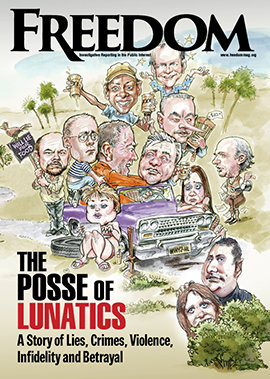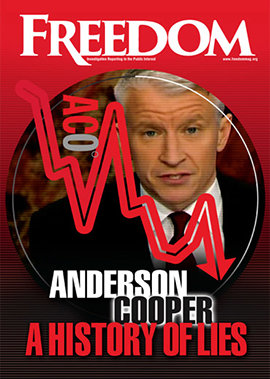This January, the Los Angeles Times let go of 115 of its staff—about 20 percent—in the most extensive purge in LA Times history. Things weren’t much better elsewhere. The same day, Time Magazine showed 15 percent of its employees the door, promising that more layoffs would soon follow.
Meanwhile, at Sports Illustrated, a staffer felt compelled to clarify that, contrary to rumors, the magazine had not let go of each and every employee. “The entire staff was not laid off,” he posted on X. “That said: Ugly, brutal day with many layoffs.”

The chain reaction continued. Forbes cut 3 percent of its workforce, and Business Insider amputated 8 percent. NBC News hacked off 50 to 100 staff, and The Washington Post offered 240 employees voluntary severance packages after a year that saw that venerated gazette go $100 million in the red.
The New York Daily News was spared the formality of laying off its staff; many simply walked out in protest of continuing pay cuts.
Media goliath Condé Nast, umbrella to a kaleidoscope of snob magazines—among them, The New Yorker, Vanity Fair, Architectural Digest, Pitchfork, Vogue, Glamour and GQ—is also coming apart. In November, the company announced it would terminate 94 staff. Two months later, just after the New Year, Artistic Director Anna Wintour kept her signature sunglasses on at a meeting as she announced that two flagship publications, GQ and Pitchfork, would merge. Shortly after that, 400 employees staged a 24-hour walkout in protest of the merger and of yet more planned staff cuts. (What’s keeping Condé Nast afloat for the time being is not the quality of its journalism but its luxury advertisers.)
The platforms had fair warning of the coming Armageddon. A Gallup poll from October 2023 showed that a paltry 32 percent of Americans have a “great deal” or a “fair amount” of confidence that mass media will relay news and information to them accurately and fairly. Worse, 39 percent of Americans say they don’t trust the media at all—the highest percentage since Gallup started asking the question.
The LA Times did it again in late February, showcasing their bias by glorifying a group of antireligious harassers whose ringleader is a convicted felon.
The lesson is plain: Dealing in distortions and downright lies fosters mistrust. Citizens are not gullible simpletons who lap up any slop the media tosses them. People know after a while when they’ve been lied to, and the people have spoken: “Fool me once, shame on you. Fool me 957 million times, no more clicks from me.” When a journalist or journal taints facts with bias, prejudice and untruth, that individual will, soon enough, be out of a job—and that publication will, soon enough, disappear.
Case in point: bias in media coverage of religion. A recent study found that 63 percent of media stories covering a religion have a negative bias against that religion. The Washington Post—one of the platforms frantically trying to stanch its own bleeding, as covered above—has a history of anti-Scientology coverage. Even when presented with facts that disprove their propaganda, Post editors chose to ignore documented truth and let a false article stand uncorrected.
That exact same mockery of journalism happened last year with another media giant now singing the blues, the Los Angeles Times. After the Church of Scientology provided LA Times editors with 15 pages of hard evidence exposing an upcoming article as pure fiction, the Times walked away from the facts and published the fabrications anyway. They did it again in late February, showcasing their bias by glorifying a group of antireligious harassers whose ringleader is a convicted felon.
How many other religions, races, ethnicities and communities read about their faith or culture or way of life and don’t recognize themselves? How many individuals are ruined each day in the name of the Almighty Click? And when will dishonest media learn that if they scream “Wolf! Wolf!” enough times, they are destined to be ignored?
As the deluge of red ink gushing from media coffers demonstrates all too graphically, they go broke shortly thereafter.






















